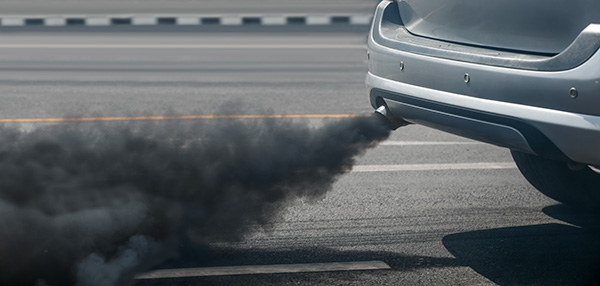
Have you noticed your car’s oil level dropping faster than usual? Maybe you’ve even seen bluish smoke trailing behind you as you drive. Burning oil is a common issue, and while it might seem like a minor inconvenience at first, it can signal significant engine problems that need attention. Understanding what causes a car engine to burn oil can help you address the issue before it leads to more severe damage and costly repairs.
Why Engines Burn Oil
All engines consume a small amount of oil during regular operation, but burning excessive oil isn’t normal. When oil burns, it typically happens because it has found its way into the combustion chamber. This can happen for several reasons, ranging from minor issues like worn-out seals to more serious internal engine problems. Identifying the cause early is key to preventing further damage.
Worn Piston Rings
Piston rings are critical for maintaining the seal between the piston and the cylinder walls. They keep oil in the crankcase and out of the combustion chamber. Over time, these rings can wear out or lose their effectiveness, allowing oil to seep into the cylinders and burn alongside the fuel.
If your engine burns oil because of worn piston rings, you may notice reduced engine performance, increased exhaust smoke, and a higher-than-normal frequency of adding oil. This issue often requires professional repair, as replacing piston rings is a complex job.
Valve Seals and Guides
Another frequent cause of oil burning is worn valve seals or guides. These components help regulate oil flow within the engine and keep it from leaking into the combustion chamber. When they wear out, oil can slip past and burn during combustion, leading to visible smoke and reduced oil levels.
This problem is more common in older vehicles or engines that have been subjected to extreme conditions, like overheating. Addressing it usually involves replacing the valve seals or guides.
High-Pressure Oil Leaks
In some cases, excessive oil burning isn’t caused by internal components but rather by external leaks under pressure. For example, oil might escape through a worn-out gasket or a cracked seal and then get burned off by the engine’s heat. While this doesn’t technically involve oil entering the combustion chamber, it still leads to noticeable oil loss and possibly a burning smell.
Regular inspections can catch high-pressure leaks before they escalate, saving you from more extensive repairs.
Clogged or Faulty PCV Valve
The Positive Crankcase Ventilation (PCV) valve plays an essential role in your engine by releasing built-up pressure and redirecting gases back into the intake manifold. A clogged or malfunctioning PCV valve can force oil past seals, and into places, it doesn’t belong, like the combustion chamber.
Replacing a faulty PCV valve is usually an inexpensive fix, making it a good first step if you suspect oil is being burned.
Overheating and Thermal Breakdown of Oil
Engines that frequently run too hot can contribute to oil burning. High temperatures cause oil to thin out and lose its protective properties, making it easier for the oil to slip past seals and enter the combustion chamber. Overheating can also damage seals and gaskets, exacerbating the problem.
Regular maintenance, like checking your coolant levels and ensuring the cooling system is functioning properly, can help prevent overheating and reduce the risk of oil burning.
The Impact of Neglecting Oil Changes
Skipping oil changes or using the wrong type of oil can accelerate engine wear and tear. Old or dirty oil loses its ability to lubricate and protect the engine, increasing friction and the likelihood of oil seeping into the combustion chamber. Using high-quality, manufacturer-recommended oil and adhering to a consistent oil change schedule can prevent this issue.
Addressing Oil Burning
Ignoring excessive oil burning isn’t just bad for your car; it’s bad for your wallet. Over time, burned oil can leave deposits on engine components, clogging vital parts like the catalytic converter. This can lead to reduced performance, higher emissions, and costly repairs. Running low on oil can cause severe engine damage, including complete failure.
By addressing oil burning as soon as you notice it, you can avoid these expensive outcomes and keep your vehicle running efficiently.
What to Do If Your Engine Is Burning Oil
If you suspect your engine is burning oil, here are some steps you can take:
- Monitor Your Oil Levels: Check your oil regularly using the dipstick and top off as needed.
- Inspect for Leaks: Look for signs of oil leaking around the engine or underneath your vehicle.
- Schedule a Professional Inspection: A trained technician can identify the root cause of the issue and recommend the appropriate repair.
- Stick to a Maintenance Schedule: Regular oil changes, filter replacements, and other routine services can help prevent excessive oil consumption.
Is your car burning oil or showing signs of trouble? At Autoworks Of Issaquah in Issaquah, WA, we’re here to diagnose and fix the issue with precision. Schedule an inspection today and ensure your engine gets the care it needs.